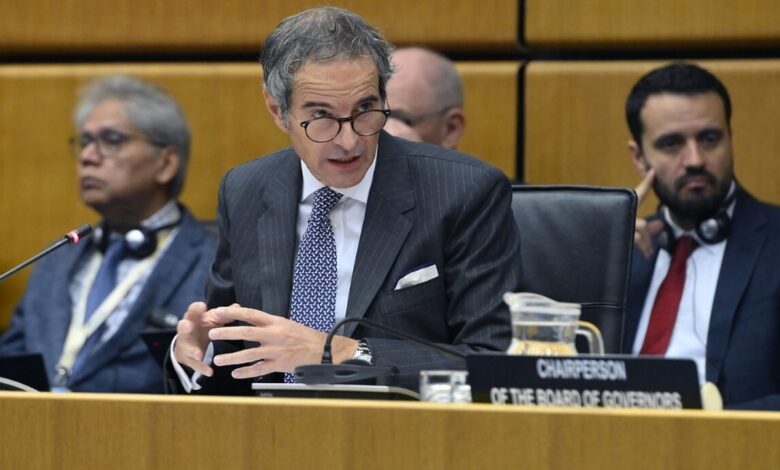Grossi: Uranium enrichment and production of nuclear weapons are two separate categories/ Iran does not have nuclear weapons

| The Director General of the International Atomic Energy Agency, by separating the category of uranium enrichment from the process of producing nuclear weapons, announced: Iran does not produce nuclear weapons despite its enriched uranium reserves. |
Rafael Grossi said in a conversation with PBS: We must be realistic. Iran currently does not have nuclear weapons. Iran has large amounts of highly enriched uranium reserves, and this issue has naturally drawn our attention, because no other country that does not have nuclear weapons is enriching at this level.
He stated that the production of nuclear weapons is a complex process and requires more measures in addition to enriched uranium, adding: Those who are looking for nuclear weapons conduct experiments in this field, such as North Korea.
>
The director general of the International Atomic Energy Agency continued: Now we are not in a situation where Iran has nuclear weapons, but we must convince this country to return to full cooperation with the agency.
In another part of this conversation, he repeated the political claims about the peaceful nuclear program of our country and said: The enrichment process in Iran is increasing and nuclear materials are being enriched at a very high level. Of course, the issue of Iran is very complicated and has many dimensions.
Grossi continued: The issue is not only uranium enrichment, which is of course very important, because it can be used to produce nuclear weapons, but the inspectors (agency) have other concerns about the lack of full visibility of what is happening, and this What I would say is that it has steadily decreased.
The director general of the International Atomic Energy Agency added: I don’t want to mislead you, the agency is there (Iran) and inspects, but its level is not to the extent and depth required by Iran’s nuclear program. I have told my Iranian counterparts that we would like to re-engage and resume this process.
In political statements beyond his scope of responsibility, he pointed to the status of the 1994 agreement and said: The JCPOA has been abandoned in practice. (No one) has declared that this agreement is dead, but it is currently an empty shell because no one is implementing it and there is no dialogue or diplomacy going on.
Referring to the fact that the International Atomic Energy Agency is not part of the JCPOA agreement, Grossi said provocatively: JCPOA was concluded based on Iran’s technological capacities at that time. This issue is related to 10 years ago and Iran’s enrichment speed has increased during this period and more centrifuges are operating. Iran has also planned new locations for its nuclear activities and therefore the coordinates of that agreement (JCPOA) have obviously changed.
On this basis, he claimed: They might politically want to say that we should return to that agreement, but the reality is that the Iran of 2015 is not the Iran of 2024.
The director general of the International Atomic Energy Agency also pointed to Iran’s compensatory measures in the JCPOA, repeating the claim of reducing the agency’s access and stating that if the JCPOA is to be resumed one day, the continuation of the status quo will make the agency’s work difficult. /p>
He stated that he has discussed this issue with the authorities of our country and said that if the agency is unable to verify Iran’s nuclear program, he will not be able to provide the report required to resume the implementation of the JCPOA.
Grossi claimed: We must revive the verification capacities now in order to have stable conditions in the future.
In response to the question of what will happen if Iran opposes the agency’s request, the director general of the International Atomic Energy Agency claimed that the agency would not be in a position to confirm the peaceful nature of Iran’s nuclear program. =”font-size:12pt;”>This is while the Islamic Republic of Iran has repeatedly emphasized that the compensatory measures implemented in the JCPOA “will not directly or indirectly affect the agency’s ability to carry out its inspections in Iran.”
The Permanent Representative of the Islamic Republic of Iran to the United Nations Office and other international organizations based in Vienna in March of last year made a statement pointing out that “currently, the Agency has a total of 120 inspectors appointed for the Islamic Republic of Iran”. Kurd: This clearly shows that Iran is willing to enable the agency to carry out its tasks by benefiting from the expertise of various inspectors.
Source: IRNA
| © | Webangah News Hub has translated this news from the source of Young Journalists Club |


